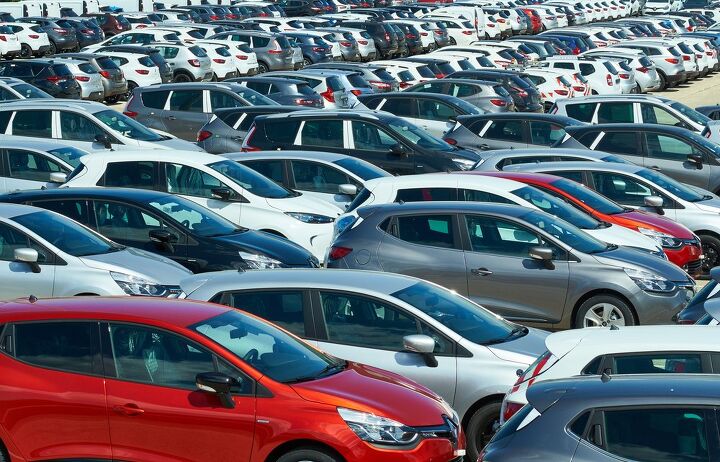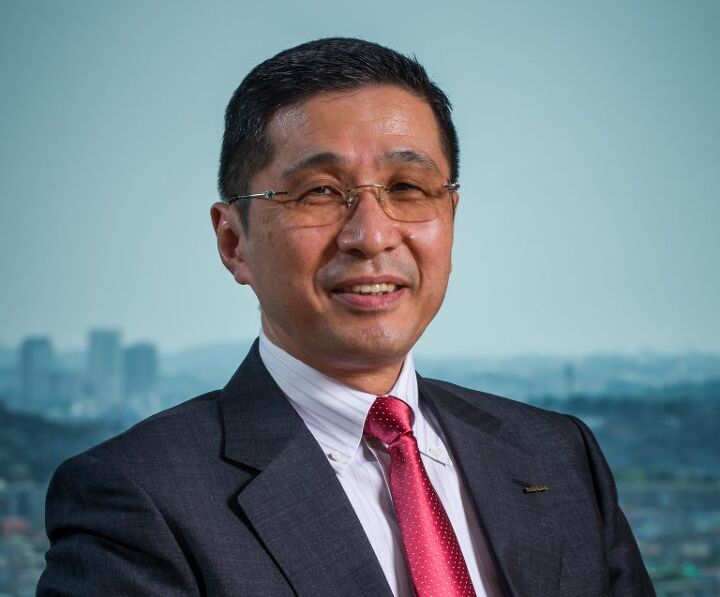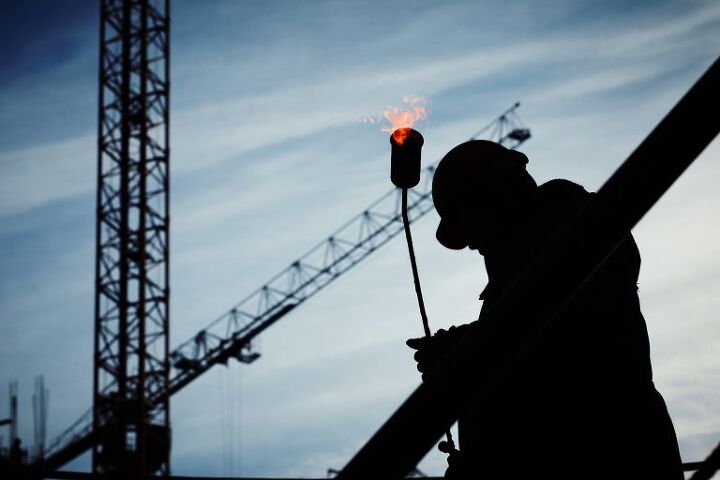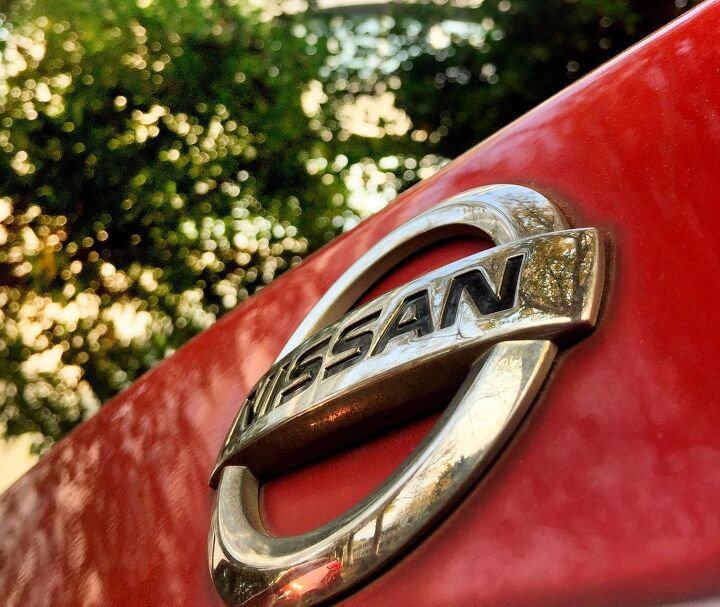#HirotoSaikawa
Where Is the Renault-Nissan Alliance Headed?
The relationship between alliance partners Renault and Nissan remains incredibly strained. We’ve documented the souring of this corporate relationship closely since November, starting with the arrest of former Nissan chairman and Renault CEO Carlos Ghosn, but the partnership’s new chapter is a bit more confrontational. Of course, the relationship trouble started long before that.
Still in the midst of a corporate power struggle, Renault recently decided to block Nissan’s board reforms — possibly in response to the Japanese automaker not supporting a possible merger between the French automaker and Fiat Chrysler. Regardless, the Alliance now appears to be in real jeopardy, with neither side interested in cooperating. Nissan CEO Hiroto Saikawa appears to be hip to this fact, claiming the two sides need to take steps to stabilize and reinforce the Renault–Nissan–Mitsubishi Alliance or risk it dissolving completely.
More Drama: Renault to Block Nissan's Corporate Reform
Nissan and Renault’s strained relationship is well documented at this point. And yet the scribes keeping tabs on the matter must now dip their quills in fresh ink, as a new chapter is ready to be written. Following the arrest of Carlos Ghosn, industrial scandals, a subpar earnings report, and more headaches, Nissan intends to adjust its corporate structure while passing some internal reforms.
However, Renault Chairman Jean-Dominique Senard recently issued a letter to the automaker saying the company would abstain from voting on the issue. As Nissan’s adoption of the reform requires two-thirds approval, Renault could easily block the plan with its sizable stake in the company. Nissan politely calls the automaker’s stance “most regrettable,” but execs in Yokohama must be seething.
Automotive Politics: Saikawa Stays as Nissan's CEO, Renault's Next Move
Nissan’s Hiroto Saikawa appears to be staying on as CEO, despite claiming late last year that he would soon step down. While not sensational news in itself, the decision is underpinned by growing animosity between the automaker and alliance partner Renault.
Back in March, the Renault-Nissan-Mitsubishi Alliance was doing damage control following the arrest of its chief architect, Carlos Ghosn — resulting in a memorandum of understanding that aimed to restore balance between the automakers and prove to the public that they were all still friends. However, less than a month later, things began to unravel. Renault (encouraged by the French government) was, once again, pushing for integration and hoping to rejigger Nissan’s management structure.
Now the very legitimacy of Nissan’s board is being called into question.
Nissan's Bad Year Greenlit for a Sequel
Nissan is bracing for a bad year. On Tuesday, the automaker held a press conference at its headquarters in Yokohama, Japan, to tell the world that it’s forecasting a 28-percent decline in operating profit this year. While that sounds bad, it comes on the heels of the company’s financial results for the 12-month period ending March 31st, 2019 — which was a dumpster fire.
Operating profit plunged 45 percent to 318 billion yen ($2.9 billion), while revenue fell 3 percent to about 11.6 trillion yen ($105 billion). Vehicle sales were down 4.4 percent. “Today we have hit rock bottom,” CEO Hiroto Saikawa told the press, suggesting the company could rebound in a few years.
Carlos Ghosn Releases Video Message From Prison
Out on bail and awaiting trial, former Nissan CEO Carlos Ghosn was arrested in Japan last week for the fourth time since November — putting the kibosh on a scheduled press conference where he promised to “tell the truth” about what’s been going on.
While Ghosn’s supposed bombshell will have to wait for another day, he did manage to get word out from prison in a personal video message to the world.
Nissan's Saikawa Reportedly Approved Ghosn's Retirement Deal; Coup Claims Emerge
The arrest of Carlos Ghosn, former head of the Renault-Nissan-Mitsubishi Alliance, seemed a rather straightforward back in November. By the time he was changing into his orange pajamas (or whatever color is most common in Japanese prisons), Nissan chief executive Hiroto Saikawa announced Ghosn had been dismissed from the company’s board. At the time, he claimed Ghosn and his top aide (Greg Kelly) underreported their compensation and misused corporate assets.
However, it wasn’t long until the narrative grew more complex. Following global accusations that Japanese courts could not be counted on for fair treatment, due to their ludicrously high 99-percent conviction rate, Ghosn began telling the press he believed he was on the receiving end of a corporate coup devised by Nissan. Slowly but surely, minor evidence supporting his claims trickled in.
On Wednesday, an external committee reviewing Nissan’s corporate governance suggested that enough facts exist to suspect Carlos of violating securities law and misusing company funds. However, the committee’s findings include a line indicating that Saikawa signed off on Ghosn’s retirement package.
Renault Reportedly Interested in FCA; Nissan Merger Still in the Works
Renault reportedly wants to restart merger talks with Nissan next year and is even considering a follow-up marriage with another automaker — possibly Fiat Chrysler.
While the Renault-Nissan-Mitsubishi Alliance’s official goals for 2019 are difficult to pin down, a memorandum of understanding was recently established to improve corporate synergy and reassure the public that members can play nice after the drama-filled arrest of Carlos Ghosn. However, it would seem that the long game still includes mergers.
Earlier this month, top executives from Renault, Nissan and Mitsubishi appeared together to prove to the world that the alliance is not in jeopardy. It was known that Ghosn had been advocating for a merger against Nissan’s wishes for years, and many, including the defamed former alliance boss, have speculated that the associated pressures aided in the company acting against him in order to see him brought up on charges.
Renault-Nissan-Mitsubishi Alliance Seeks 'New Start'
A meeting rumored to be targeted at developing a new board to oversee the Renault-Mitsubishi-Nissan Alliance took place earlier this week at Nissan’s global headquarters, sans Carlos Ghosn, with the automakers agreeing to a consensus-based governing strategy. At the heart of this pact is the need to diffuse tensions between France and Japan.
If you’ll recall, Nissan had grown perturbed by its perceived lack of autonomy within the alliance and repeated merger talk coming from Ghosn prior to his arrest. The man himself claimed that the corporate conflict is ultimately what led to his undoing — suggesting Nissan’s CEO simply wanted him out of the picture before he was fired.
With Ghosn Gone, Nissan CEO Allegedly Changes Mind About Retirement
Nissan’s Chief Executive Officer, Hiroto Saikawa, apparently intends to stick around a little longer than previously expected. According to unnamed Nissan staffers who spoke to Bloomberg, the CEO told executives he plans to stay at least three more years to help the automaker recover from the aftermath of the scandal involving Renault-Nissan-Mitsubishi Alliance head Carlos Ghosn — despite recently signalling his intent step down in the near future.
Saikawa was hand-picked by Ghosn as Nissan CEO in 2017. However, the two grew increasingly distant as talk of a potential merger with alliance partner Renault began to swell. In fact, Ghosn was actively working toward combining the companies up until his November arrest — which he attributed to interference from Nissan.
While still incarcerated, Ghosn admitted he was not pleased with Saikawa’s performance, and had been considering removing him from his role within the company. The Nissan CEO had taken a hardline stance against the merger, choosing to support Japanese interests first.
Mitsubishi Sides With Nissan in Merger Backlash, Ghosn Claims He Was Set Up
Depending who you ask, the November arrest of disgraced auto executive Carlos Ghosn was either swift justice or a coup d’etat — with some help from the Japanese government. Re-arrested in December and held ever since without bail, Ghosn faces breach of trust charges alleging the exec covered losses incurred through foreign exchanges with Nissan’s funds between 2008 and 2012. Those losses add up to $16.6 million, according to the prosecution. He’s also cited for misrepresenting his income.
However, Ghosn doesn’t see things that way. On Wednesday, he told the Nikkei business daily that he believed the charges against him were motivated by Nissan executives opposed to further integration with its French alliance partner, Renault SA. “All the evidence is with Nissan and Nissan forbids all employees to talk to me,” he elaborated.
Nissan CEO Hiroto Saikawa to Step Down, but Only After Taking Out Some Trash
Claiming he wants a fresh start for the scandal-rocked Renault-Nissan Alliance, Nissan CEO Hiroto Saikawa announced on Friday his intention to move aside in the coming months, giving someone else a chance to run the company.
Alliance partner Renault divested itself of former CEO Carlos Ghosn this week, two months after the executive’s Tokyo arrest. With this in mind, Saikawa, who denounced the alliance boss at length following news of his arrest, suggested a change in leadership would be a good thing for Nissan, too. However, there’s work to be done first.
Ghosn Says Slow Your Roll on the Renault-Nissan Merger, Then Confirms the Possibility
As Renault and Nissan discuss ways to strengthen their bond, Carlos Ghosn is asking everyone to slow their roll on the prospect of a merger. Despite continuously nudging the alliance in that direction, the CEO and chairman is often hesitant to discuss unification as anything more than a hypothetical. So this is par for the course.
“I don’t think you’re going to see it this year or next,” Ghosn said on Wednesday. “Lots of mergers collapse and destroy value — the strength of any company is the ability to motivate people, and how how are you going to do that if some of these people consider themselves second-class citizens.”
The second-class citizens he’s referencing are, presumably, Nissan employees seeking more influence within the Renault-Nissan-Mitsubishi Alliance. A large part of the group’s current strategy is to find ways to give the Japanese automaker more of a say in product development and operations.
Baby Steps: Nissan Seeks Stronger Ties With Renault, Merger Remains Possible
Carlos Ghosn, chairman of the Renault-Nissan-Mitsubishi Alliance, has made it clear that his ideal solution for all three automakers is to stop pussyfooting around and enter into a full-on merger. Officially, there’s no deal in the works. “Any discussion about a share transaction involving Renault, Nissan or the French state is pure speculation,” explained alliance spokesman Jonathan Adashek earlier this month.
Unofficially, things are quite different. Renault and Nissan are both committed to maintaining a healthy and strong relationship, but the French government is hesitant to even suggest the possibility of abandoning its stake in Renault. For political reasons, it can’t seem as if the company is being relinquished to Japanese interests vis-à-vis a corporate takeover. Therefore, an accord has to be reached to provide Renault with some level of autonomy — or a lie has to be crafted to make it look that way.
While Ghosn previously denied any possibility of a merger, he began claiming it was a very real possibility this year. Having already developed a structure that would see management of Renault, Nissan, and eventually Mitsubishi Motors overseen by a Dutch foundation based in Amsterdam, the chairman suggested it (or something like it) could also serve as a mediator for their integration as a singular global automotive group. But the French Ministry for the Economy and Finance said that wouldn’t be a possibility. So what’s the solution?
Baby steps.
Japanese Automakers: Trump's Steel Tariff Will Cost You More at the Dealership
Earlier this month, President Trump signed an executive order imposing a 25 percent tariff on foreign steel and a 10 percent tariff on foreign aluminum. Hoping to receive an exception, the Japanese auto lobby warned that the U.S. import tax would definitely inflate the price of models built by the companies it represents. That’s bad news.
However, the White House has already omitted its NAFTA partners from the tariffs, adding that it would consider further exceptions based on countries’ contributions to U.S. national security, military alliances, trading history, and how much they pay into strategic alliances like NATO.
While Japan is a longtime trading partner with the U.S., there currently exists a $69 billion deficit between the two countries. Trump also bemoaned Japan’s unwillingness to accept American imports. Still, the two have shared military alliances throughout the 20th century, with one ugly exception during World War II. They currently operate under the Treaty of Mutual Cooperation and Security and the U.S. currently considers the Japan one of its closest allies, despite it not being a NATO member — placing it in reasonably positive standing for tariff exceptions.
Nissan's New Strategy: Build Brand Value, Not Fleet Sales or Incentives
Nissan has long-standing tradition in North America of being a bargain brand. While the automaker fields plenty of affordable options with a base MSRP undercutting that of its rivals, it has also leaned on aggressive incentivizing and heavy fleet sales. This helped Nissan chase volume in the U.S., but CEO Hiroto Saikawa is no longer convinced it’s a winning strategy.
He’s tasking Denis Le Vot, Nissan’s new North American boss, to improve profitability and brand value after the company’s operating profit dipped 50 percent in the region in the last quarter of 2017.
It’s a tall order for Le Vot, who has only had a little over one month to settle into being the regional chairman for the brand, and Saikawa is only giving him another two to figure out how to pull it off. However, he’s hinting at a strategy that eases off dealers, offers fewer market incentives, and ditches a reliance on fleet sales.



























Recent Comments